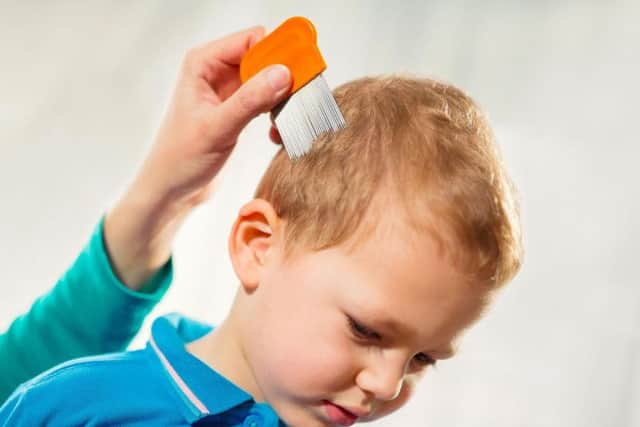Ask an expert: Can my child catch head lice from taking selfies?


I heard 'selfies' have been linked to a rise in head lice cases. Is that right and what can I do to help prevent lice in my family?
Ian Burgess, director of the Medical Entomology Centre, which researches treatments to minimise the impact of insects on humans and animals, says: "The study you're referring to wasn't scientific, but was based on parents' perceptions of lice in their family.
Advertisement
Hide AdAdvertisement
Hide Ad"The study suggested a perceived link between children congregating closely around smartphones and head lice, but it wasn't enough to draw a conclusion. I would suggest that, at present, there's no scientific evidence to show selfies play any role in head louse transmission beyond what might be found by normal head-to-head contact.


"Head lice can't jump, hop, fly or swim, so they rely on head-to-head contact to spread. When taking selfies, this is exactly what happens, but plenty of other activities such as playing closely or reading bedtime stories also generate head-to-head contact.
"The main issue around lice is some parents don't check their children's heads often enough, so the small risk of head louse transmission magnifies because infestations aren't identified early enough and therefore have a chance to spread throughout a social group.
"A study by Hedrin found 87% of parents feel worry, panic or stress when they discover lice in their child's hair, but I would reassure parents that head lice are a common part of childhood and are easy to eliminate using the correct treatments.
Advertisement
Hide AdAdvertisement
Hide Ad"It's best to check your child's head regularly for lice - an easy way to remember is Once A Week, Take A Peek. If you do find an infestation, speak to your pharmacist about using a clinically proven non-pesticide treatment.


"Avoiding head-to-head contact is the best method of prevention, but this can be difficult for children as they're often very close to each other at school and home. Pharmacies offer protection products which can help to break the life cycle of head lice, stopping them from breeding and migrating."